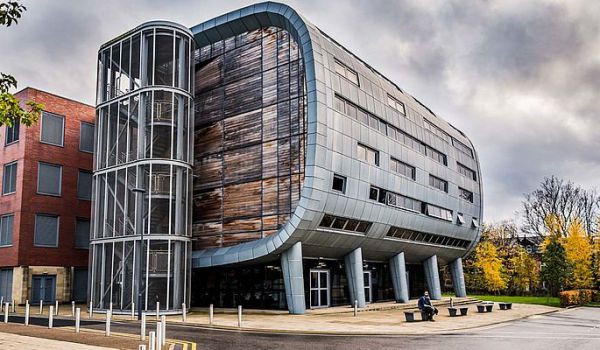Visiting Leeds from abroad as a PhD Student
- Centre for Enterprise and Entrepreneurship Studies

One year ago, I started my six-month visiting period in Leeds, hosted by the Centre for Enterprise and Entrepreneurship Studies (CEES) and supervised by Dr Mariana Estrada-Robles. It was a very important experience for me during my doctoral studies, and I really recommend studying abroad as a great opportunity.
This visit gave me the opportunity to observe and live in a different environment, extend my network, learn from the experiences of other scholars, and establish new collaborations.
This wasn’t my first experience of studying abroad; I previously took part in the Erasmus program, visiting Lithuania during my undergraduate studies, but this was surprisingly different. I still perceive European people as quite similar, but this time I noticed lots of small cultural differences e.g. how the University is organised, how it operates, and how both students and academics experience university life.
It was my first time in the UK and I took the opportunity to explore the country, understand the culture, and try to fit in. In the end, like driving on the other side of the road, studying and living in the UK was neither better nor worse, just a different approach.
Indeed, it was very interesting to look at all these differences and challenge the things I had taken for granted back home. For instance, comparing the two universities, I would define Leeds University Business School as more formal and structured, and Bergamo as more “community-oriented”. In Leeds, there is dedicated staff to support academics (even PhD students!) with various tasks, there are many structured procedures, and everyone works quite independently.
In Bergamo, on the other hand, responsibilities and daily work are organised more flexibly, often shared among academics, and everyone also tend to be on campus more often. Similarly, the English concept of an organised campus dedicated to the university is quite uncommon in Italy. Indeed, the university in Bergamo is spread out across different parts of the city.
Most importantly, being at Leeds University Business School allowed me to extend my network by meeting scholars working on the same topics. This included members of the Centre for Enterprise and Entrepreneurship Studies (CEES), who hosted me, as we share an interest in entrepreneurship and family business, but also some members of the Centre for Technology Innovation and Engagement (C-TIE) and other academics in the Management and Organisations Department, working on green innovation or corporate purpose. One particularly enjoyable event was the Ambassador Day, when CEES gathered all its affiliated entrepreneurs to meet students and have dinner together.
I am also very grateful that I could use this period to attend some internal courses, such as Advanced Qualitative Methods, to expand my skills, and seminars, such as the Management Research Seminar Series, to learn more about what was going on in the department. I also attended the Business School’s Workshops Series and the Business School’s Guest Lecture Speaker Series, where I learnt from international scholars such as Professor Roy Suddaby (University of Victoria, Canada) and Professor David Silverman (Goldsmiths, University, of London).
Talking with people who have had different career paths is always interesting and insightful. As a qualitative doctoral student, it was especially valuable to see how research methodologies and techniques were adapted (or simply understood) in a different country, where the environment is shaped by a different legal system, culture, and level of internationalisation.
One of the outcomes of the visit is a working paper that I have written with Dr Mariana Estrada-Robles and Professor Giovanna Campopiano, my supervisor in Bergamo. The paper, which is currently in its draft stage, includes a chapter on my doctoral dissertation. In Italy, indeed, one option for writing a dissertation is to compose a collection of “publishable” papers that share a common topic. This kind of collaboration is very valuable both for strengthening the dissertation and increasing the chances of actual publication. Working with an international co-author helps to broaden the perspective, makes the analysis more robust, and brings more competencies to the team.
Now the challenge is to strengthen the relationship between Bergamo and Leeds. In the short term, this means continuing the research collaboration and working towards publishing the paper. In the long run, it could be the opportunity to have more exchanges or joint initiatives between the CEES and the Centre for Young and Family Enterprise (CYFE) - the group to which I belong in Bergamo. Let’s hope that one day, CYFE will host a PhD student from CEES.
Contact us
If you would like to get in touch regarding any of these blog entries, please contact:research.lubs@leeds.ac.uk
Click here to view our privacy statement. You can repost this blog article, following the terms listed under the Creative Commons Attribution-NonCommercial-NoDerivatives 4.0 International licence.
The views expressed in this article are those of the author and may not reflect the views of Leeds University Business School or the University of Leeds.

